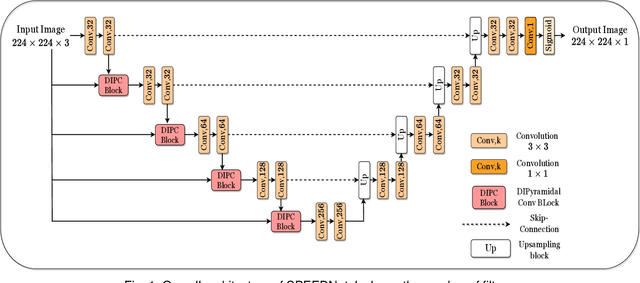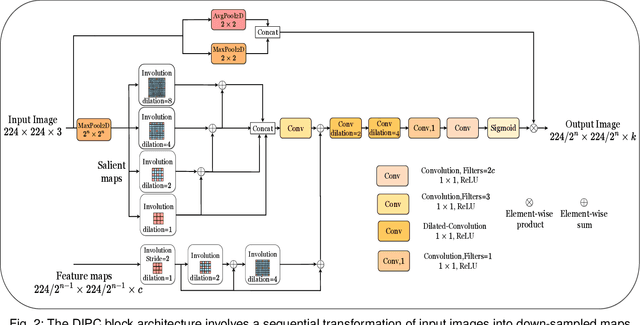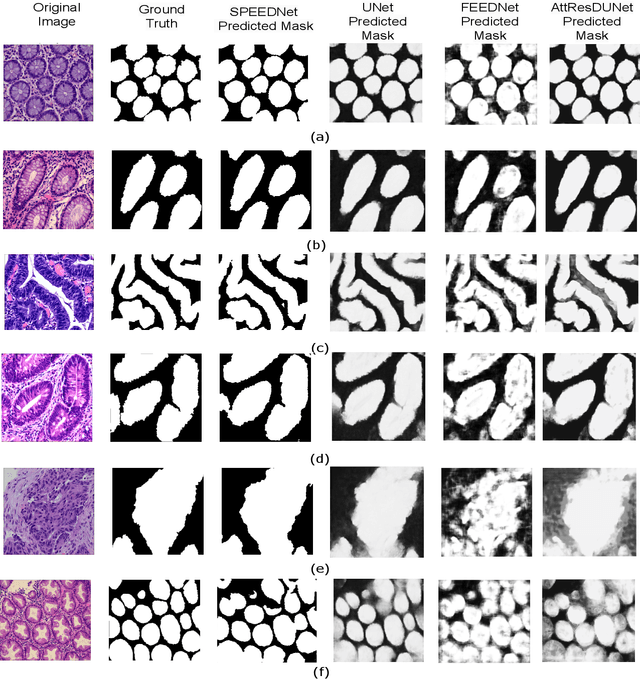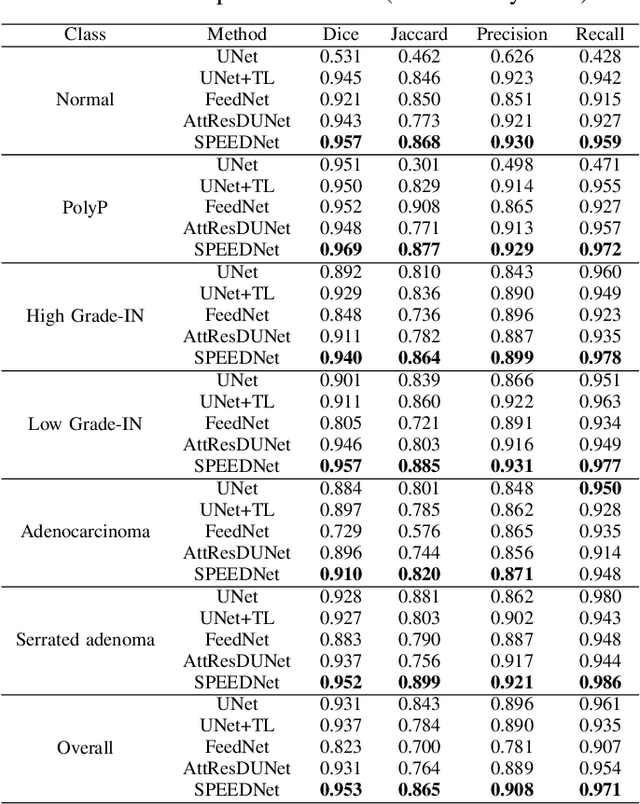Tushir Sahu
SPEEDNet: Salient Pyramidal Enhancement Encoder-Decoder Network for Colonoscopy Images
Dec 02, 2023



Abstract:Accurate identification and precise delineation of regions of significance, such as tumors or lesions, is a pivotal goal in medical imaging analysis. This paper proposes SPEEDNet, a novel architecture for precisely segmenting lesions within colonoscopy images. SPEEDNet uses a novel block named Dilated-Involutional Pyramidal Convolution Fusion (DIPC). A DIPC block combines the dilated involution layers pairwise into a pyramidal structure to convert the feature maps into a compact space. This lowers the total number of parameters while improving the learning of representations across an optimal receptive field, thereby reducing the blurring effect. On the EBHISeg dataset, SPEEDNet outperforms three previous networks: UNet, FeedNet, and AttesResDUNet. Specifically, SPEEDNet attains an average dice score of 0.952 and a recall of 0.971. Qualitative results and ablation studies provide additional insights into the effectiveness of SPEEDNet. The model size of SPEEDNet is 9.81 MB, significantly smaller than that of UNet (22.84 MB), FeedNet(185.58 MB), and AttesResDUNet (140.09 MB).
 Add to Chrome
Add to Chrome Add to Firefox
Add to Firefox Add to Edge
Add to Edge